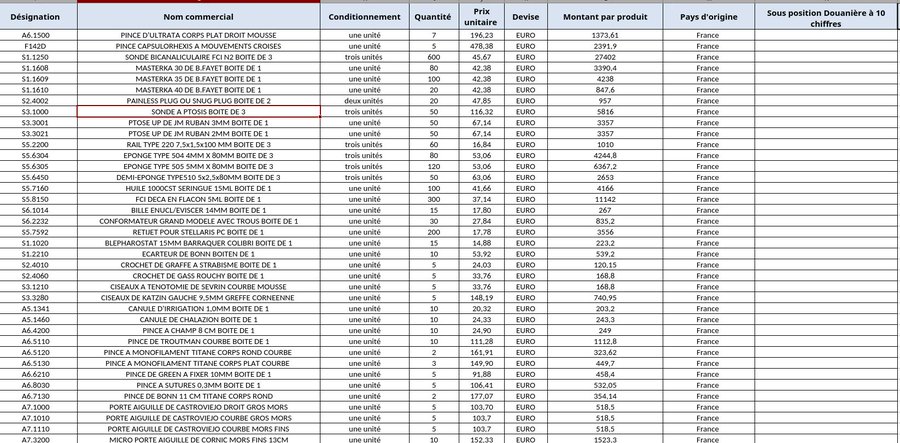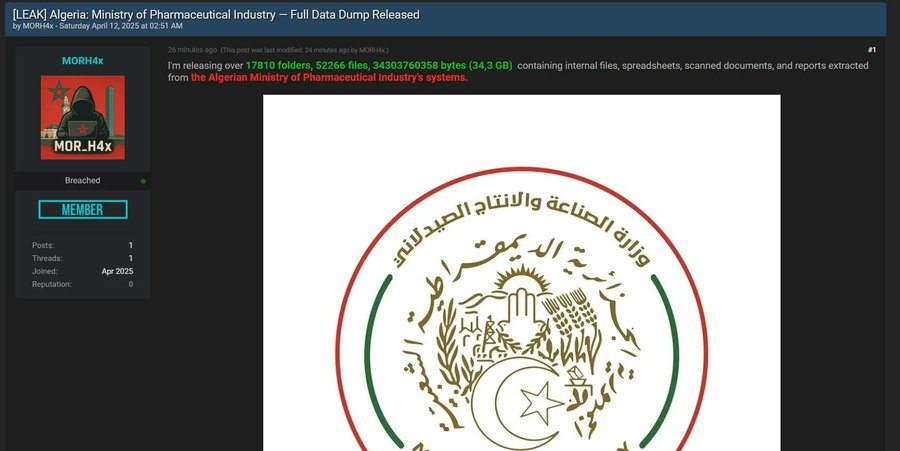Urgent: Reports of Cyberattacks Targeting Algerian Military and Industry
Unconfirmed reports suggest a cyberattack on General Abdel Salam Belghoul’s email and the Algerian Ministry of Industry and Pharmaceutical Production, allegedly by Moroccan hackers. If verified, these incidents could escalate tensions between Morocco and Algeria. However, the lack of official confirmation urges caution regarding the credibility of these claims.

April 11, 2025 – Unconfirmed reports have emerged alleging a cyberattack on the personal email of General Abdel Salam Belghoul, head of Algeria’s Information Systems Security Agency and a senior figure in the Algerian People’s National Army’s cybersecurity operations. Additionally, claims circulating on social media suggest that Moroccan hackers breached Algeria’s Ministry of Industry and Pharmaceutical Production, leaking sensitive data. These incidents, if verified, could escalate tensions between Morocco and Algeria amid already strained relations.
Alleged Breach of General Belghoul’s Email
According to posts on X, an unidentified group reportedly hacked the private email of General Abdel Salam Belghoul, a key figure responsible for securing Algeria’s military information systems. No official confirmation from Algerian authorities has been issued as of April 11, 2025, and details remain speculative. The lack of verified evidence raises questions about the claims’ credibility, but such an attack, if true, could expose vulnerabilities in Algeria’s cybersecurity infrastructure.

Reported Hack of Algeria’s Pharmaceutical Ministry
Separately, posts on X claim that Moroccan hackers infiltrated the Algerian Ministry of Industry and Pharmaceutical Production, extracting over 17,810 folders and 52,266 files, totaling 34.3 gigabytes. The alleged leak includes internal documents, spreadsheets, scanned records, and reports. Among the purported findings is evidence of Algeria’s heavy reliance on imported French pharmaceuticals, though specifics are unverified.
These claims lack corroboration from official sources, and no accessible evidence confirms the breach’s scope or authenticity. The absence of detailed reports from credible outlets urges caution in interpreting these allegations.
Context of Regional Tensions

The reported cyberattacks follow a pattern of escalating friction between Morocco and Algeria, including a recent diplomatic row over a downed Malian drone, which Mali attributed to Algerian forces. Both nations have accused each other of destabilizing actions, with cybersecurity becoming a new battleground. While unverified, these hacking claims align with broader narratives of rivalry, potentially amplifying distrust.
Implications and Uncertainty
If substantiated, the breaches could have significant repercussions:
- Military Security: A compromised email of a cybersecurity chief might expose sensitive communications, though no such data has surfaced publicly.
- Industrial Impact: Leaked pharmaceutical data could reveal strategic dependencies, affecting Algeria’s economic and health policies.
- Diplomatic Fallout: Attributing the hacks to Moroccan actors risks further straining bilateral ties, especially without concrete evidence.
However, the reliance on unverified X posts underscores the need for skepticism. Cyberattack claims often serve as tools for propaganda or misinformation, particularly in geopolitically charged contexts.
Conclusion
As of now, the reported hacks of General Belghoul’s email and Algeria’s pharmaceutical ministry remain unconfirmed, with no official statements from either Algerian or Moroccan authorities. Observers should await credible evidence before drawing conclusions. The situation highlights the growing role of cyber warfare in regional disputes, where truth is often the first casualty.







